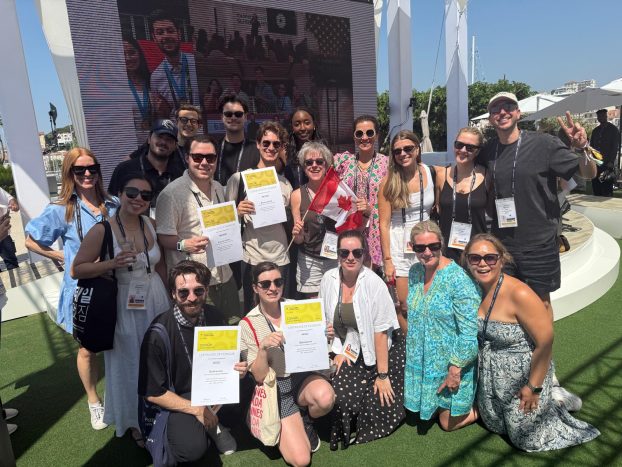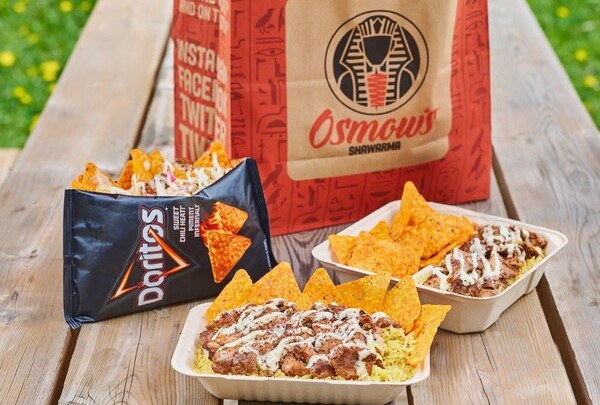Everyone’s heard the clichés before.
‘We’re living today in a world without borders.’ ‘There is no such thing as a Canadian company anymore.’ ‘The whole world is our marketplace now.’
But what, exactly, does all of this mean in terms of concrete, day-to-day reality? What do Canadian firms go through in the effort to market their products and services internationally? How do they build brands on a global basis? What are the challenges – and the rewards?
For this special report, Strategy’s writers profile the global marketing activities of several noteworthy Canadian companies.
Valentine’s Day may be a big deal in Canada, but it doesn’t signify a whole lot in Singapore.
To most of us, that’s just an interesting little nugget of information. But if you’re a Canadian cosmetics retailer that markets worldwide, it’s a business issue of some considerable import.
What it means specifically to Shelley Tushinski, vice-president of marketing for Toronto-based Faces, is that a special tent card designed for this year’s Feb. 14 promotion in Canada couldn’t mention Valentine’s Day by name. The text had to be vague enough to support a more generic promotion in the Singapore market as well. In the end, the wording chosen for the front of the card was: ‘Heart & Soul. Care for the body you love.’
An awareness of cultural differences is one of the major prerequisites for any company interested in pursuing an international strategy. Certainly that’s the lesson that Faces has learned through its own efforts to establish a global brand.
Founded in 1974, the company has over the past decade built a presence in several countries outside North America, including Singapore.
When it was purchased by Toronto-based Flagship Capital Partners 18 months ago, Faces placed a temporary moratorium on further global expansion. Now that the transitional period is over, however, there are plans to begin developing franchises in several new markets, including Israel, Puerto Rico and China.
The company’s global strategy is simple, but impressively farsighted. ‘We didn’t build our business [domestically] and then try to go global,’ Tushinski says. ‘We actually built the product line and the business with a strategic view to take it global.’
Faces offers products appropriate to women of all ethnic backgrounds. The line includes 25 different foundations, spanning virtually every skin tone, along with 200 lipsticks and 150 eye shadows.
The ethnic diversity of the company’s hometown makes it the ideal place to develop a product line for the global marketplace, Tushinski says. ‘Toronto is a mosaic of the world,’ she explains.
Faces positions itself as a kind of cosmetics candy store, somewhere between the drugstore makeup aisle and the high-end department store cosmetics counter. Most franchises in Canada are stand-alone kiosks located in high-traffic mall areas. In other countries, however, that retail model isn’t always ideal. Vandalism in malls is a significant problem in Mexico, for example, so the Faces franchises in that country take the form of traditional retail outlets, rather than booths.
Whether a customer visits a Faces franchise in Markham or Mexico City, it’s important that the experience be the same. For this reason, franchise operators from other markets fly in to Canada regularly to take part in the teaching seminars offered by the company.
Faces eschews traditional advertising, relying primarily on public relations and point-of-sale support. Marketing materials are developed here in Canada, and then sent to franchise operators either electronically or via snail mail, to be adapted as circumstances require.
The company never assumes that what works here in Canada makes perfect sense in all other markets, Tushinski adds. For this reason, franchisees are given the leeway to apply their own expertise on local markets.
‘The key to the whole thing is finding operators who know the market,’ she says.
Also in this report:
– Tim Hortons issues wakeup call: Builds underdeveloped breakfast category p.25
– Honeydew pegs future on U.S. sales p.26
– Buckley’s takes bad taste message abroad: Cough syrup marketer making steady inroads in U.S. and overseas p.27
– Great Canadian Bagel makes slow but sure gains in Moscow p.27
– Southbrook Farms and Winery proves its worth abroad: Ontario winemaker uses foreign success to boost sales at home p.28
– Seagull Pewter sells at shows: Family-run giftware operation does business in over 20 territories p.28
– Clearly Canadian launches in U.S. first p.28




























